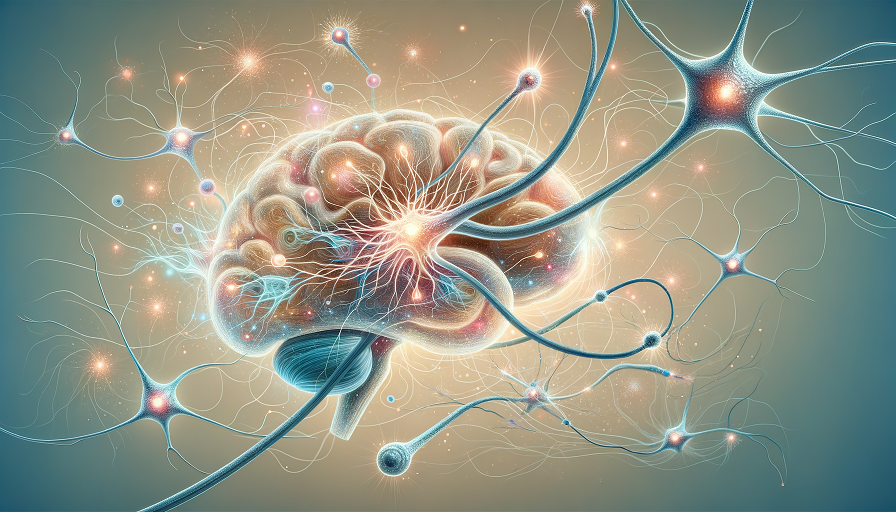When it comes to brain health, most people focus on things like memory, concentration, or mood. But beneath the surface, there’s a critical metabolic factor that quietly influences all of these functions: homocysteine.
Homocysteine is a sulfur-containing amino acid produced during the metabolism of methionine, another amino acid found in protein-rich foods. In small amounts, it’s harmless. But when homocysteine levels rise—due to poor diet, stress, or nutrient deficiencies—it becomes a problem. High homocysteine is strongly linked to cognitive decline, memory loss, mood disorders, and even neurodegeneration.
The good news is that three essential B vitamins—B6, B9, and B12—are the body’s main tools for keeping homocysteine in check. Here we look at how these B vitamins work together to reduce homocysteine, protect your brain, and why they’re foundational ingredients in cognitive enhancement formulas like Mind Lab Pro.
What Is Homocysteine, and Why Is It a Problem?
Homocysteine is a normal byproduct of methionine metabolism. However, elevated levels can damage blood vessels, promote inflammation, and interfere with blood flow to the brain. In the nervous system, excessive homocysteine can:
- Increase oxidative stress
- Promote neuroinflammation
- Damage brain cells and impair neurotransmitter signaling
- Reduce cognitive flexibility, memory, and focus
Research has shown that high homocysteine is associated with a greater risk of:
- Age-related cognitive decline
- Vascular dementia and Alzheimer’s disease
- Depression and low mood
- Brain atrophy in key memory regions
Fortunately, homocysteine can be converted into harmless compounds—but only if the body has enough of the right nutrients to do it.
1. How B6, B9, and B12 Lower Homocysteine
The body uses two main pathways to reduce homocysteine, and both depend on B vitamins:
- Remethylation pathway: Converts homocysteine back into methionine using B9 (folate) and B12 (methylcobalamin).
- Transsulfuration pathway: Converts homocysteine into cysteine using B6 (pyridoxal-5′-phosphate).
Without enough of these vitamins, homocysteine can accumulate in the bloodstream and brain, where it contributes to vascular damage and oxidative stress. Supplementing with B6, B9, and B12 provides the body with the tools it needs to detoxify homocysteine and maintain brain integrity.
2. Brain Protection Through Vascular Support
One of the most damaging effects of high homocysteine is its impact on blood vessels. It makes arteries less elastic and more prone to plaque buildup—reducing blood flow to the brain. Poor circulation means less oxygen and fewer nutrients reach neurons, leading to brain fog, slower cognition, and eventually structural brain changes.
By keeping homocysteine in check, B vitamins help preserve healthy cerebral blood flow, ensuring the brain stays nourished and oxygenated—especially with age.
3. Supporting Memory and Mental Clarity
Research has found that high homocysteine is associated with shrinkage in the hippocampus and other brain areas tied to memory and learning. Supplementing with B6, B9, and B12 can help prevent this loss by reducing homocysteine levels and preserving neuronal structure and function.
In fact, studies have shown that older adults taking these B vitamins experience less brain atrophy and slower cognitive decline—especially when starting with elevated homocysteine levels.
4. Mood and Emotional Health
Homocysteine also interferes with neurotransmitter production, including serotonin and dopamine—two brain chemicals critical for mood and motivation. Low levels of B9 or B12 have been linked to an increased risk of depression, anxiety, and irritability.
By restoring methylation cycles and clearing homocysteine, B vitamins may help stabilize mood and support emotional well-being.
What the Research Says
- A landmark study in Proceedings of the National Academy of Sciences found that B-vitamin supplementation (B6, B9, and B12) slowed brain shrinkage in elderly adults with mild cognitive impairment—by as much as 30%—especially in those with high homocysteine.
- Other trials have shown improvements in memory and cognitive function when homocysteine is reduced via B-vitamin support.
- High homocysteine is considered a modifiable risk factor for dementia, meaning it can be managed with lifestyle and nutrition—most notably B vitamins.
Why It’s in Mind Lab Pro
Mind Lab Pro includes:
- Vitamin B6 as P-5-P (pyridoxal-5′-phosphate)
- Vitamin B9 as L-methylfolate
- Vitamin B12 as methylcobalamin
These forms are the most bioavailable and effective, especially for individuals with genetic variations (like MTHFR mutations) that impair folate metabolism. When combined with other neuroprotective ingredients in the formula—like Citicoline, Phosphatidylserine, and Lion’s Mane—these B vitamins provide a strong defense against cognitive aging and decline.
Who Can Benefit?
- Adults over 40 concerned about memory or long-term brain health
- Individuals with a family history of dementia or stroke
- People with elevated homocysteine (testable via blood work)
- Vegans and vegetarians, who may lack sufficient B12
- Anyone seeking to protect brain function through preventive care
When to Expect Results
While homocysteine levels don’t drop overnight, studies show that supplementation with B6, B9, and B12 can lead to measurable reductions within 8 to 12 weeks. Improvements in memory, clarity, and mood may occur more quickly—often within the first few weeks, especially in people starting with suboptimal levels.
Homocysteine may not be a household name, but it plays a powerful role in brain health. Left unchecked, it can quietly accelerate aging, damage blood vessels, and impair cognition. Fortunately, the solution is simple and natural: support your brain with the right B vitamins.
Vitamins B6, B9, and B12 work together to reduce homocysteine, protect neurons, support healthy circulation, and preserve long-term mental performance. Their presence in Mind Lab Pro highlights their importance—not only as nutritional basics, but as strategic tools for cognitive protection and longevity.

